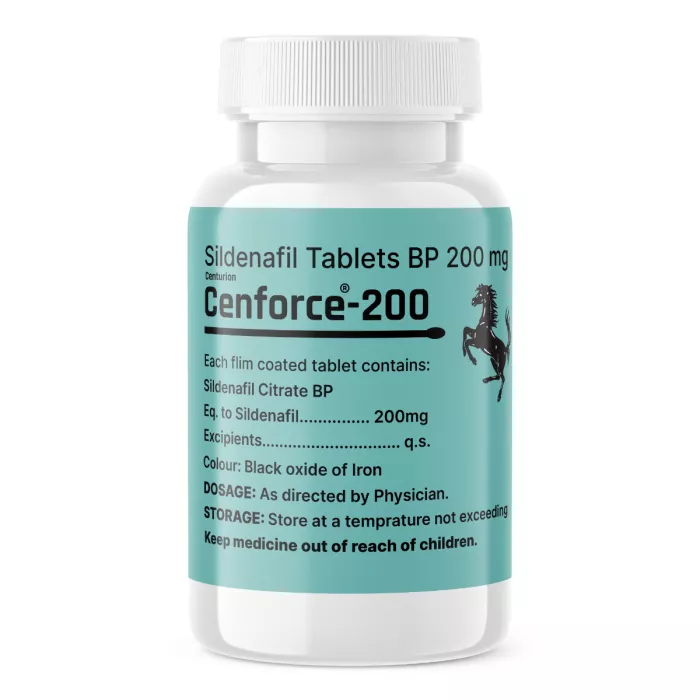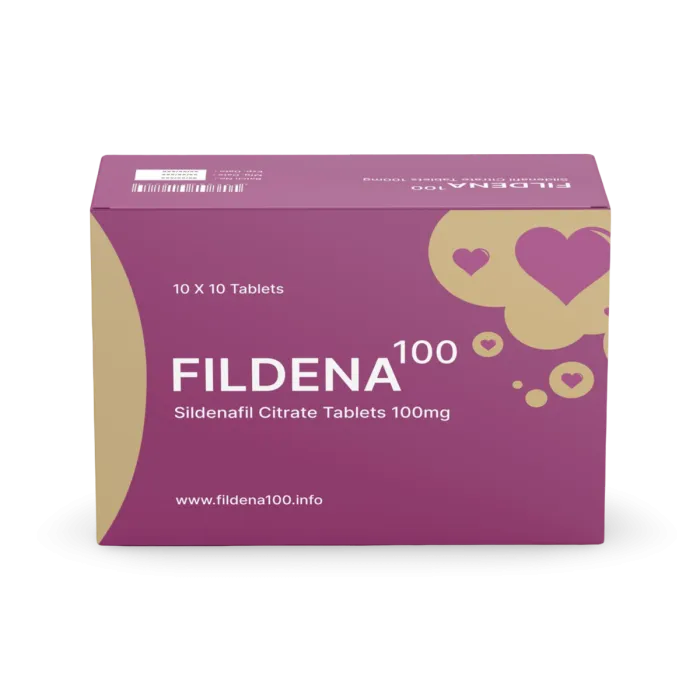Sexual well-being is essential to a person’s overall health, yet it often gets overlooked in routine health discussions.
Although it might appear straightforward, an erection is actually a highly coordinated process involving the brain, hormone signals, nerve pathways, and increased blood circulation. When all of these work together, it supports intimacy, confidence, and health.
But when something’s off, even slightly, it can affect more than just your sex life. In this article, you will learn how male erections work, why issues can arise, and what you can do to keep things functioning smoothly, so read on.
What is a male erection?
An erection happens when increased blood flow fills the spongy tissues inside the penis, causing it to enlarge and become rigid. This natural process involves two main chambers called the corpora cavernosa, which contain sponge-like tissue that fills with blood during arousal.
The process begins when nerve signals from the brain or direct physical stimulation trigger the release of Nitric Oxide (NO) in the penis. This chemical causes blood vessels to relax and widen, allowing blood to rush into the erectile chambers. As pressure builds, special valves help trap the blood inside, maintaining firmness until ejaculation or stimulation ends.
The average length of an erect penis is approximately 5.1 inches (13 centimetres). However, size during arousal doesn’t correlate with flaccid measurements, as some men experience significant changes while others see minimal differences.
Save up to 90% on your medicine bills

Cenforce 200 mg

Kamagra Oral Jelly Rx 100 mg

Fildena 100 mg

Vidalista 60 mg
Types of erections
Erections can occur for different reasons and are categorized based on what triggers them. These types reflect how the body and mind work together to support sexual function:
- Psychogenic erections: These are triggered by thoughts, visual stimuli, or fantasies.
- Reflexogenic erections: These are caused by direct physical touch or stimulation
- Nocturnal erections: These occur naturally during sleep cycles, particularly during Rapid Eye Movement or REM sleep, including morning erections, often called morning wood, a typical sign of healthy erectile function
How and why do erectile problems start?
Erectile problems can involve conditions like Erectile Dysfunction (ED), where achieving or maintaining an erection is difficult, or Delayed Ejaculation (DE), where climax takes unusually long or doesn’t occur. These issues often begin subtly, with reduced firmness or delayed arousal, and may persist over time. Causes include:
Physical causes
Cardiovascular problems are the most common physical cause of erectile difficulties. Erections rely on healthy blood flow, so any condition that disrupts circulation can impair sexual function:
- Heart disease and High Blood Pressure: Narrowed or damaged blood vessels reduce blood flow to the penis.
- Obesity: Excess weight interferes with hormone levels and blood circulation.
- Diabetes: Diabetes or high blood sugar can impair nerves and blood vessels over time.
- Hormonal imbalances: Low Testosterone, thyroid dysfunction, and other hormonal issues.
- Medications: Some antidepressants, antihistamines, and blood pressure medicines may contribute.
Psychological factors
A person’s mental and emotional state can strongly impact their sexual health and ability to perform. Since the brain initiates and sustains arousal, emotional and psychological challenges can lead to erectile issues:
- Performance Anxiety: Fear of failure during sex can lead to a recurring cycle of dysfunction.
- Stress and Depression: These conditions reduce libido and impair arousal.
- Relationship problems: Lack of emotional connection or communication barriers can affect desire.
- Past trauma: Negative or traumatic sexual experiences may impact current intimacy.
Treatment options for erectile problems
Modern medicine offers numerous effective treatments for erectile problems, including Erectile Dysfunction, Delayed Ejaculation, reduced libido, and other sexual performance concerns, with success rates varying based on the underlying cause and individual factors.
Male erection pills
Oral medications remain the first-line treatment for most men experiencing erectile difficulties. These male erection pills work by enhancing blood flow to the penis:
- Sildenafil (Viagra): Sildenafil takes effect within 30-60 minutes, lasting 4-6 hours
- Tadalafil (Cialis): Provides longer-lasting effects, up to 36 hours
- Vardenafil (Levitra): Similar to Sildenafil, but may work faster for some men
- Dapoxetine: While not an ED treatment, Dapoxetine is used to treat PE by increasing the time to ejaculation and enhancing control during intercourse.
These medications are effective for 70-80% of men with ED, though they may not work for everyone.
Male erection supplements
Many people are turning to natural or herbal supplements as a more holistic or accessible option than conventional prescription medications. While research remains limited, some of the best male erection supplements show promise:
- L-arginine: An amino acid that improves blood flow.
- Ginseng: A Traditional herb with potential benefits for erectile function.
- Yohimbine: Derived from African tree bark, may help with mild ED.
- Zinc: An essential mineral for Testosterone production and sexual health.
Alternative treatments
For men who don’t respond to oral medications, several other options exist:
- Vacuum Erection Devices (VEDs): These are mechanical pumps that help draw blood into the penis, allowing an erection firm enough for sexual activity.
- Penile injections: These are medications injected directly into the penile tissue to trigger an erection by relaxing blood vessels and increasing blood flow.
- Urethral suppositories: These are small medicated pellets inserted into the urethra, which dissolve and stimulate blood flow to induce an erection.
- Penile implants: These are surgically placed devices used in cases of severe ED when other treatments are ineffective.
Prevention and lifestyle factors
Maintaining erectile health involves adopting healthy lifestyle practices supporting cardiovascular and psychological well-being, including:
- Diet: Focus on heart-healthy foods like leafy greens, berries, nuts, olive oil, and whole grains. Limit processed foods, sugars, and trans fats.
- Exercise: Research shows that men who exercise regularly, about 30 to 60 minutes, three to five times a week, tend to see significant improvements in erectile function compared to those who are inactive.
- Stress management: Practice mindfulness, yoga, breathing exercises, or therapy to reduce cortisol levels, which may interfere with arousal and erections.
When to seek medical help
Men should consult healthcare providers if they experience:
- Persistent difficulty achieving or maintaining erections
- Sudden onset of erectile problems
- Erections lasting more than 4 hours or Priapism
- Associated symptoms like pain or unusual discharge
- Relationship or emotional stress related to sexual function
Getting help early can improve treatment success and reveal any underlying health problems that need care.
Conclusion
Understanding how a male erection works is essential for recognizing both normal sexual function and potential signs of dysfunction.
From psychological arousal and hormonal signalling to increased blood flow and nerve response, every phase of an erection is a coordinated process. While occasional issues are typical, persistent erectile problems may point to underlying conditions.
Lifestyle choices, mental health, and open conversations with a healthcare provider can make a real difference.
The more you know about how erections work, the better equipped you are to manage your sexual health confidently and responsibly. Do not hesitate to seek professional help, because healthy intimacy starts with informed awareness.

Frequently Asked Questions
What causes a male’s nipples to become erect?
A male’s nipples can become erect due to stimulation, physical, emotional (arousal, excitement), or environmental (cold temperatures). This reaction is caused by tiny muscles called arrector pili contracting, which makes the nipple protrude. It’s a normal and involuntary response, similar to goosebumps, and not always linked to sexual arousal.
Do pelvic floor exercises improve erections?
Yes. Pelvic floor exercises, like u003ca href=u0022https://www.cheapmedicineshop.com/blog/general-health/kegel-exercises/u0022u003eKegelsu003c/au003e, can enhance blood retention in the penis by strengthening muscles that support erectile function. This leads to firmer, more sustained erections and improved ejaculation control, especially in men experiencing mild to moderate erectile difficulties.
Can smartphone overuse reduce sexual function?
Yes. Excessive smartphone use, especially at night, disrupts melatonin production and sleep, indirectly lowering Testosterone levels. It also increases stress and reduces intimacy, contributing to poor arousal, psychological distraction, and Performance Anxiety that can interfere with healthy erectile function.
How does alcohol consumption affect erectile function?
Alcohol has a biphasic (dual-phase) effect on erections. Small amounts may reduce Anxiety and enhance arousal, while larger quantities impair nerve function and blood flow. Chronic heavy drinking can lead to permanent Erectile Dysfunction by damaging blood vessels and reducing Testosterone levels.
Can frequent pornography use lead to erectile issues?
Yes. Excessive porn consumption may desensitize the arousal response and create unrealistic expectations, leading to reduced stimulation during real intimacy. It can also contribute to u003ca href=u0022https://www.cheapmedicineshop.com/blog/sexual-wellness/sexual-performance-anxiety/u0022u003ePerformance Anxietyu003c/au003e and psychological Erectile Dysfunction, especially in younger men.
Can transgender males get an erection?
Yes, many transgender males can achieve erections depending on their anatomy and medical treatments. Those who retain their penis and use Testosterone often experience improved erectile function. For others with gender-affirming surgery, erections may require implants or devices to simulate this response.
Does ageing affect male erections?
Yes, ageing naturally reduces Testosterone levels and blood vessel elasticity, leading to fewer spontaneous erections and a longer time to achieve firmness. While this is common, persistent erectile difficulties may indicate health issues that benefit from medical evaluation and treatment.
Can cycling or tight clothing cause Erectile Dysfunction?
Yes, extended bicycle riding on narrow seats may temporarily reduce blood flow to the penis, but it rarely causes permanent damage. Tight clothing doesn’t typically cause ED, though it may affect comfort. Men who cycle frequently should use properly fitted, padded seats to minimize pressure.
Are there warning signs that erectile problems indicate serious health issues?
Yes, the sudden onset of erectile difficulties may signal cardiovascular problems, Diabetes, or other systemic conditions. ED often precedes heart disease symptoms by 3-5 years. Men experiencing new erectile problems should undergo a comprehensive medical evaluation to identify potential underlying conditions.
Cheap Medicine Shop only refers to credible, authoritative sources for our content. If you’re curious about how we ensure the integrity of our content, we encourage you to read our Content Information Policy.














